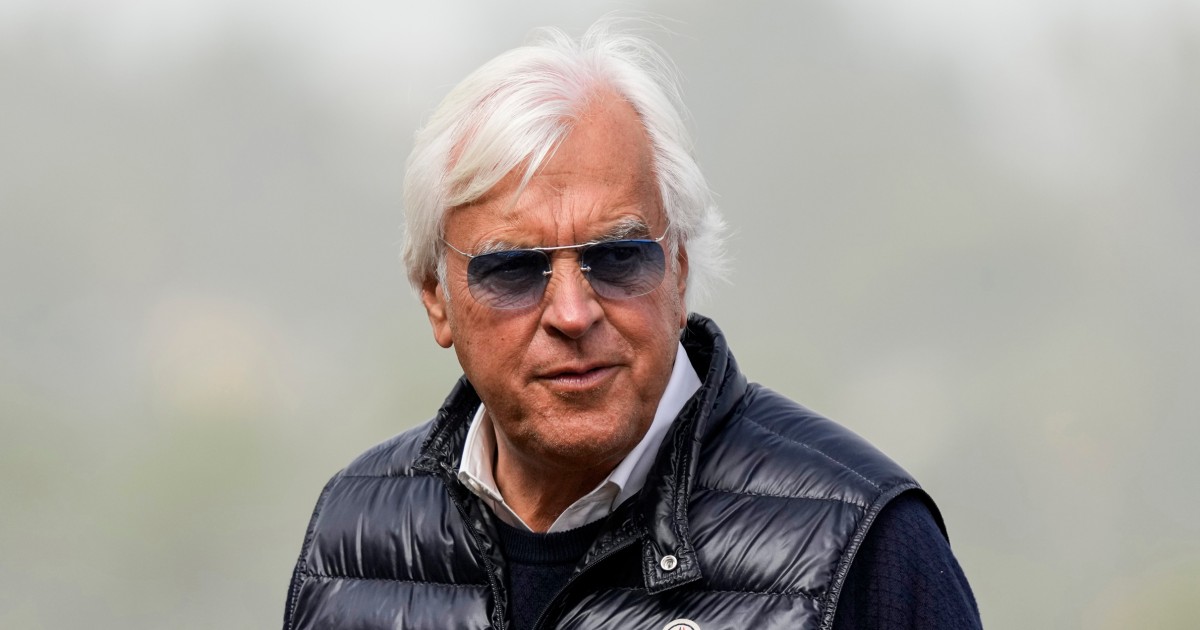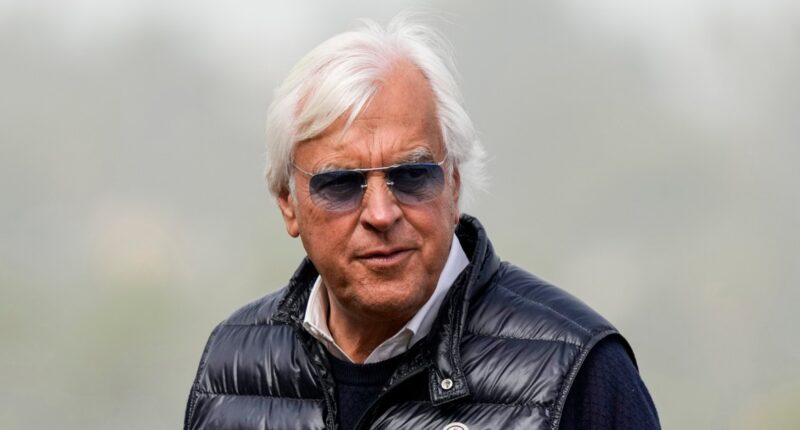
The company that owns horse racing’s crown jewel, the Kentucky Derby, announced on Monday that its two-year ban on trainer Bob Baffert is being extended through the end of 2024.
Baffert’s initial prohibition from participating in races at tracks run by Churchill Downs Incorporated was set to end this month, pending review.
But the company said Baffert has continued to show disregard for rules, regulations, safety, integrity, and fairness of horse racing at its facilities by promoting what it characterizes as lies concerning a failed drug test for one of his horses.
“Mr. Baffert continues to peddle a false narrative concerning the failed drug test of Medina Spirit,” it said in a statement.
Medina Spirit was stripped of the Kentucky Derby victory nine months after the 2021 win. The Kentucky Horse Racing Commission confirmed that a laboratory found the horse had tested positive for betamethasone after the race.
The episode inspired the Churchill Downs prohibition.
Baffert has denied drugging the horse on purpose, and on Monday he issued a statement reiterating his assertion that a topical treatment administered to Medina Spirit may have led to the positive.
He said racing officials are still adjudicating the issue of whether the topical substance — he identified it as Otomax — is allowed. His own lawyers, Baffert said, assured him it was within rules.
“I have been open, honest, and forthcoming about these events,” Baffert said. “In no way does this involve a ‘disregard for the rules.'”
Last year he sued Churchill Downs in federal court over the suspension.
Betamethasone is a legal, pain-relieving steroid commonly used to treat horses, but Kentucky and other states prohibit it in any amount on race days.
Veterinarians say its overuse could mask serious bone and joint injuries and lead to a deadly breakdown.
In 2018, The New York Times reported that another Baffert horse, Justify, which had helped the trainer achieve his historic Triple Crown sweep in 2018, allegedly tested positive for a banned drug and should have been disqualified from the Derby.
The Times reported that California regulators with oversight of the drug test took a month to confirm it, then concluded the horse accidentally ingested the banned substance, scopolamine, from eating jimson weed present at Santa Anita.
Baffert’s attorney at the time said the report on Justify’s drug test was “short on facts” and sensationalist.
Wayne Pacelle, president of the group Animal Wellness Action, said drugs like betamethasone have contributed to high-profile horse deaths at race tracks from coast to coast.
“Churchill Downs Inc., which has been under fire for the 12 racehorse deaths leading up the Kentucky Derby, made the right call to scratch Baffert through the end of 2024,” Pacelle said in a statement Monday. “His long record of breaking the rules speaks for itself.”
Baffert’s Churchill Downs ban was initially set for two years through the spring season that ends this month.
The company, which also owns or co-owns Arlington Park Race Track, Ellis Park, Turfway Park, and others, said it will reevaluate Baffert’s suspension in 2025.
Baffert, based in Los Angeles, has also faced temporary suspensions from the New York Racing Association, the state of Maryland, and Santa Anita, his home track.
Baffert, a Hall of Fame trainer, is one of only two who have won all three Triple Crown races in a single year. He has also won 17 of the three races that lead to a Triple Crown.
Source: | This article originally belongs to Nbcnews.com









